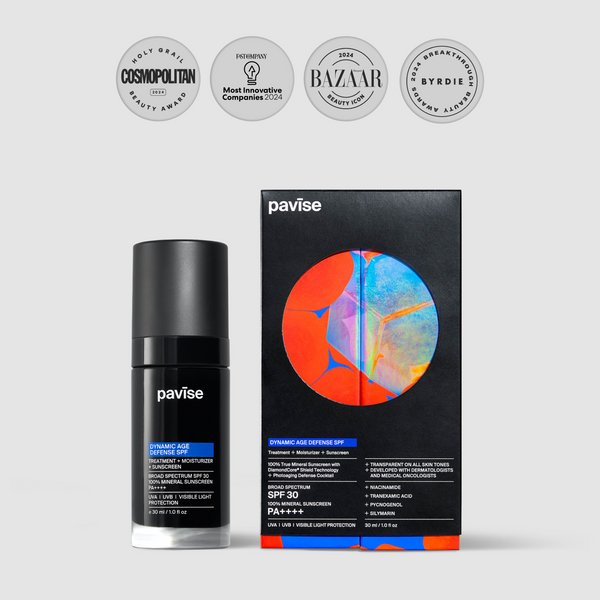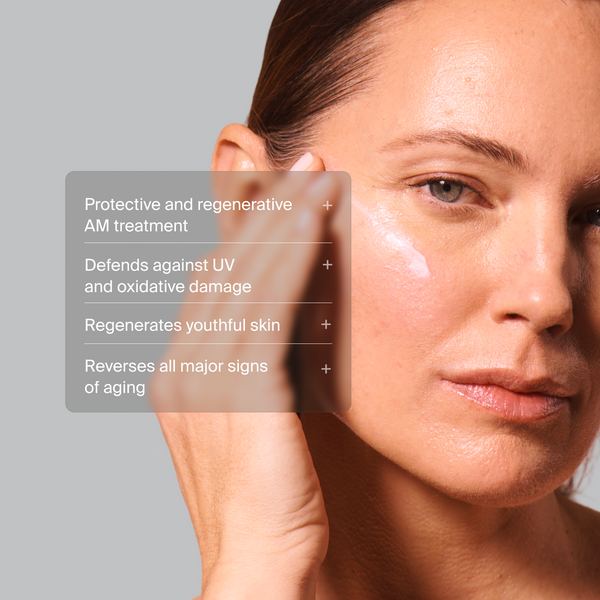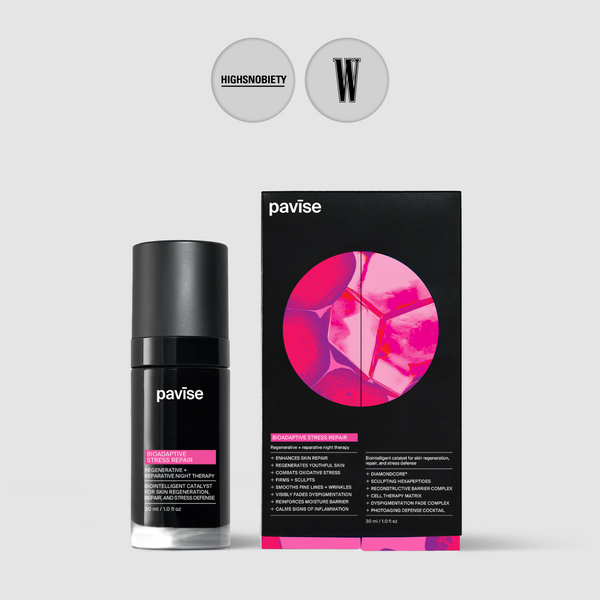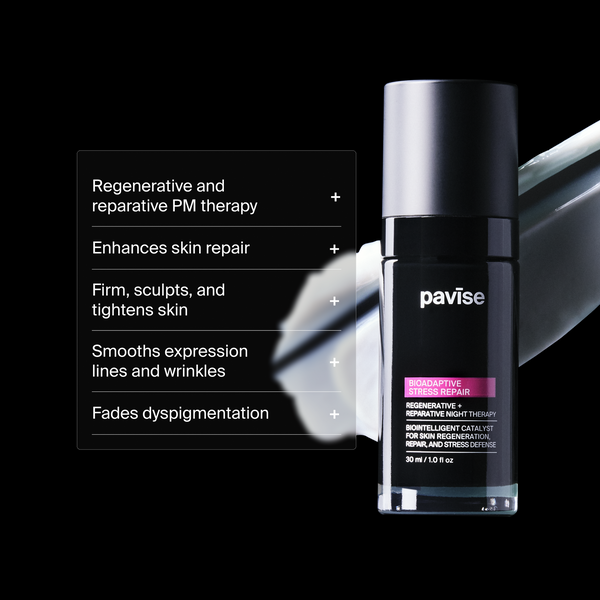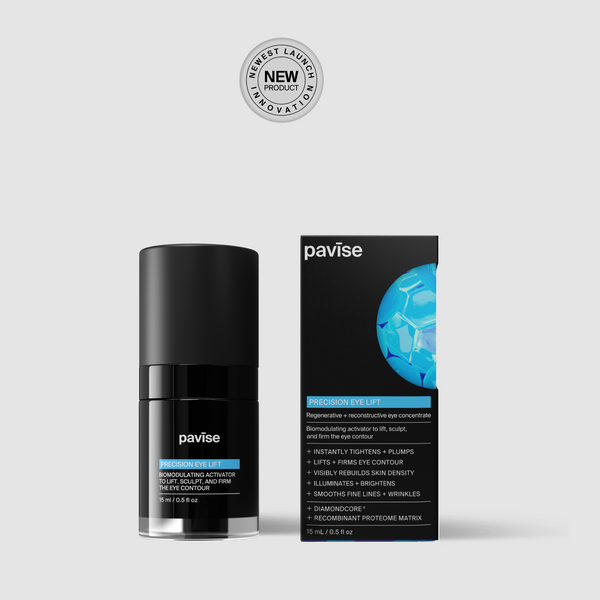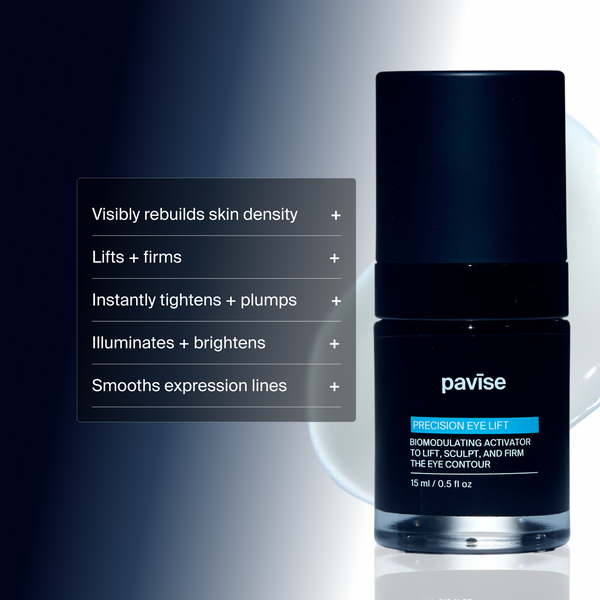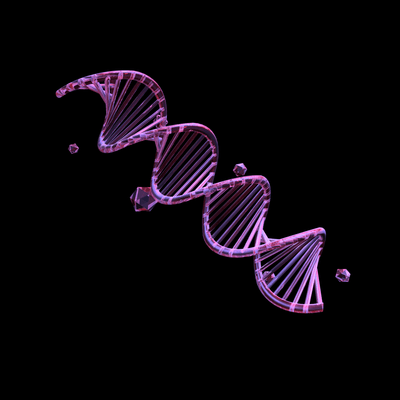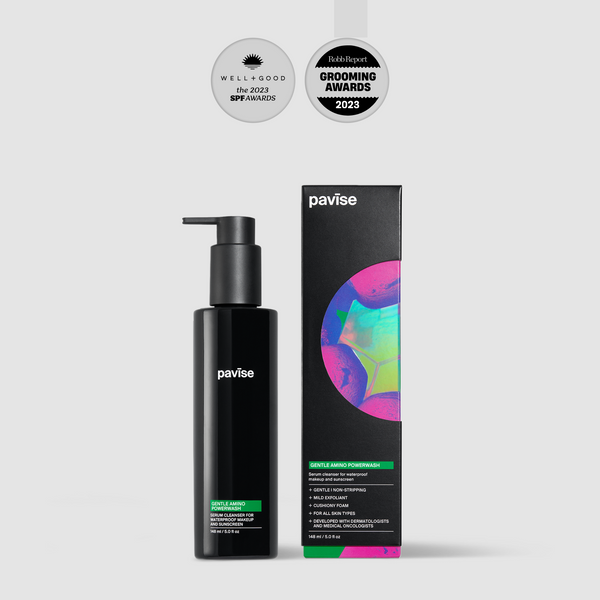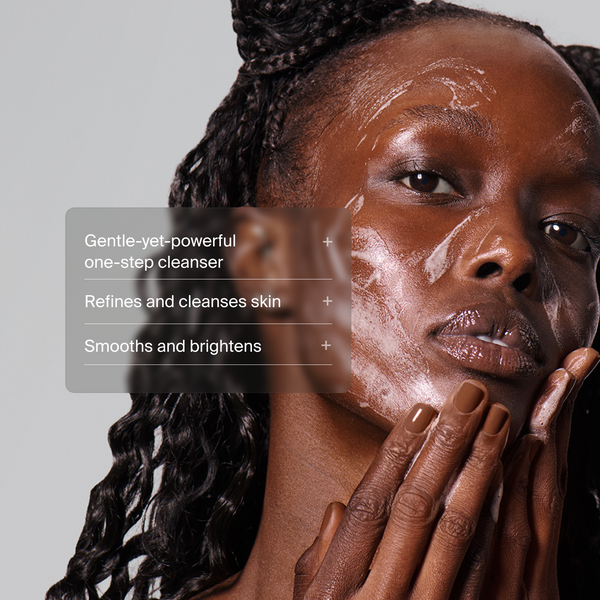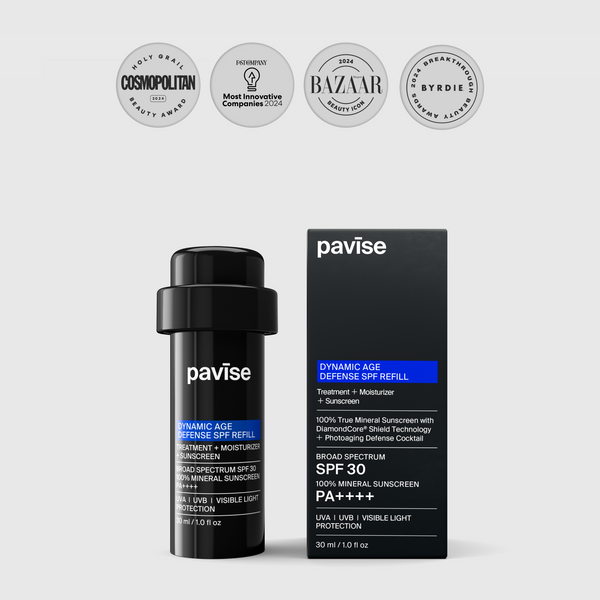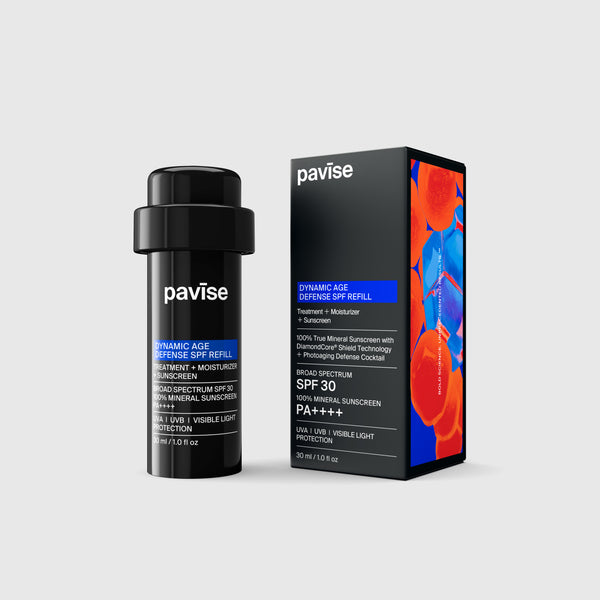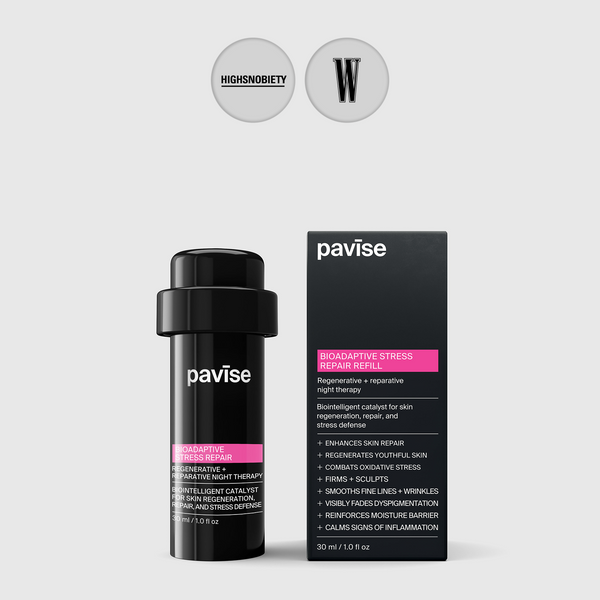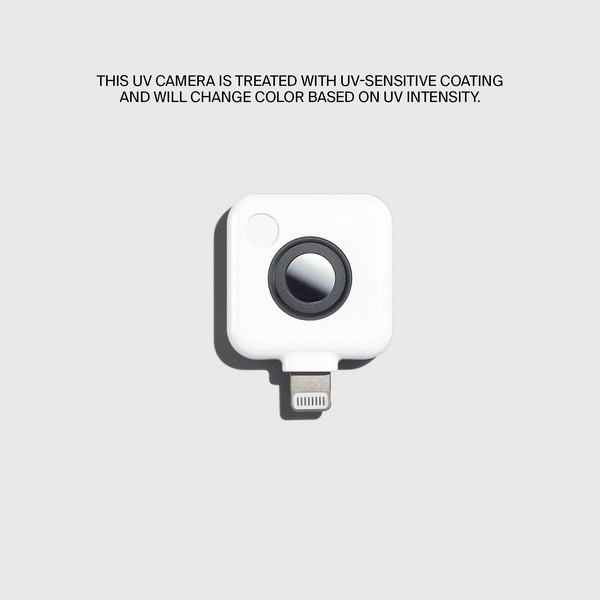Niacinamide
Also known as nicotinamide or Vitamin B3, niacinamide plays several roles in the maintenance of healthy skin. It’s both an antioxidant and a humectant and offers multiple skin benefits. As a humectant, niacinamide fortifies your skin’s natural moisture barrier and increases skin hydration. It boosts the skin’s natural production of ceramides, which further strengthen the skin’s barrier. This helps to protect skin against TEWL (transepidermal water loss) and from pollutants and irritants present in your environment. It has been shown to decrease wrinkle depth and improve fine lines and skin texture.
As a powerful antioxidant, niacinamide is uniquely stable in the presence of UV radiation and scavenges free radicals produced in UV-exposed skin that typically damage skin cells. This ability supplements niacinamide’s performance as a protectant against oxidative and environmental stress.
Via its ability to neutralize free radicals which contribute to hyperpigmentation, and its ability to block melanin transfer from deeper layers of skin to surface layers of skin, niacinamide is a force against hyperpigmentation as well. Niacinamide doesn’t impact the melanin production, just melanin transfer to top layers of skin that typically results in age spots, dark spots, and skin discoloration.
Finally, niacinamide helps to inhibit sebum production, reducing the appearance of enlarged pores and oily skin.
References:
-
Gehring, W. “Nicotinic Acid/Niacinamide and the Skin - PubMed.” National Institutes of Health, National Institutes of Health, 20 Apr. 2023, https://pubmed.ncbi.nlm.nih.gov/17147561/.
-
National Institutes of Health, National Institutes of Health, https://www.ncbi.nlm.nih.gov/pmc/articles/PMC2769151/pdf/ijms-10-04066.pdf. Accessed 11 Apr. 2023.
-
Zhu, Wenyuan. “The Use of Botanical Extracts as Topical Skin-Lightening Agents for the Improvement of Skin Pigmentation Disorders - PubMed.” National Institutes of Health, National Institutes of Health, 20 Apr. 2023, https://pubmed.ncbi.nlm.nih.gov/18369335/.

